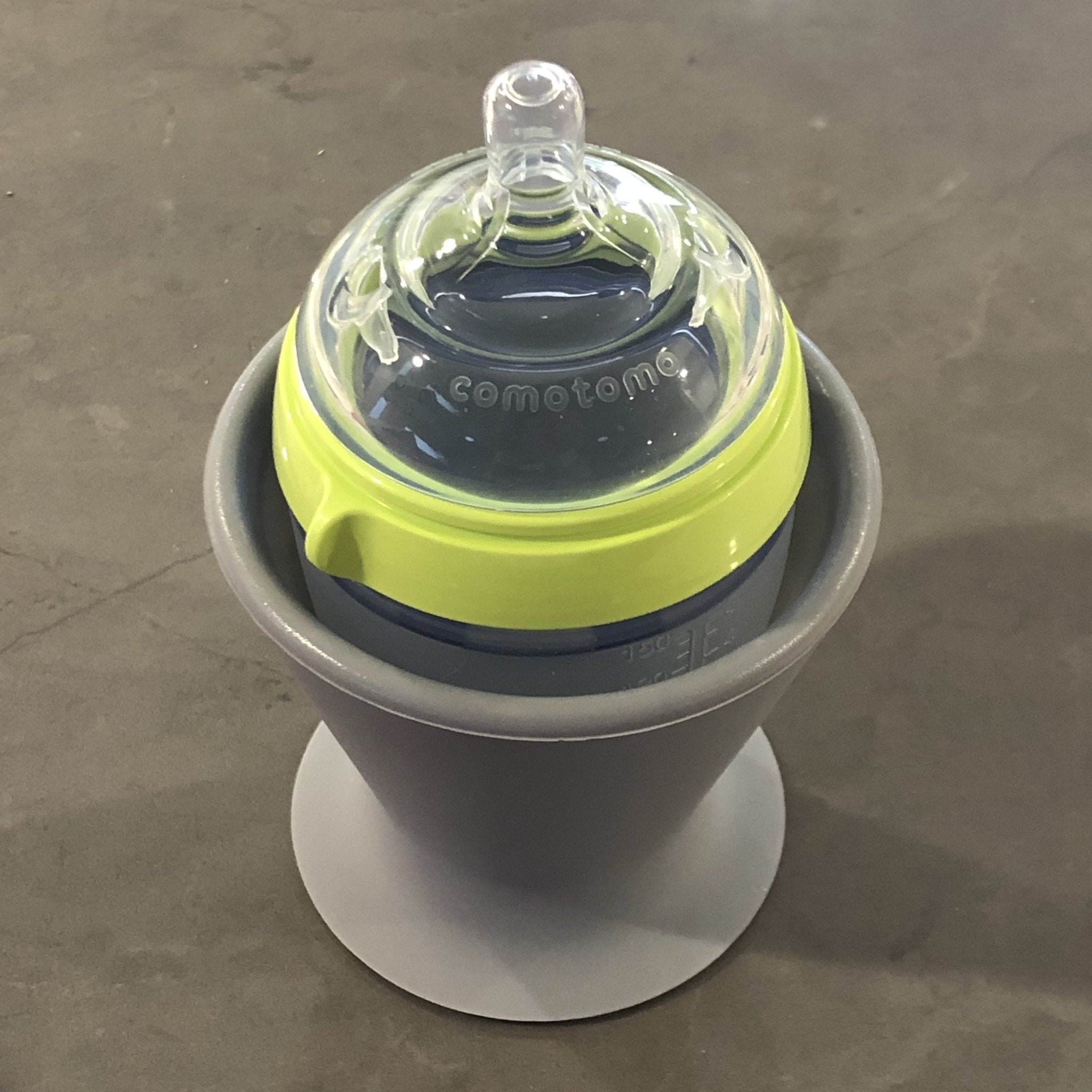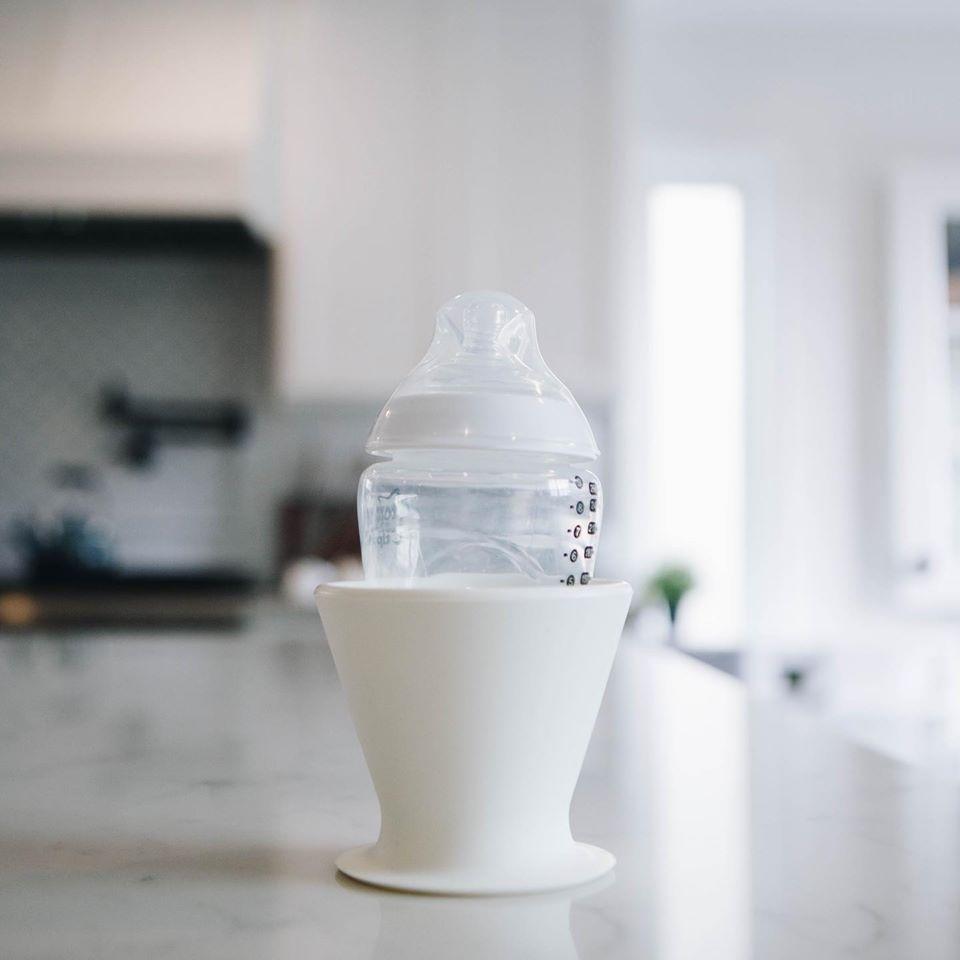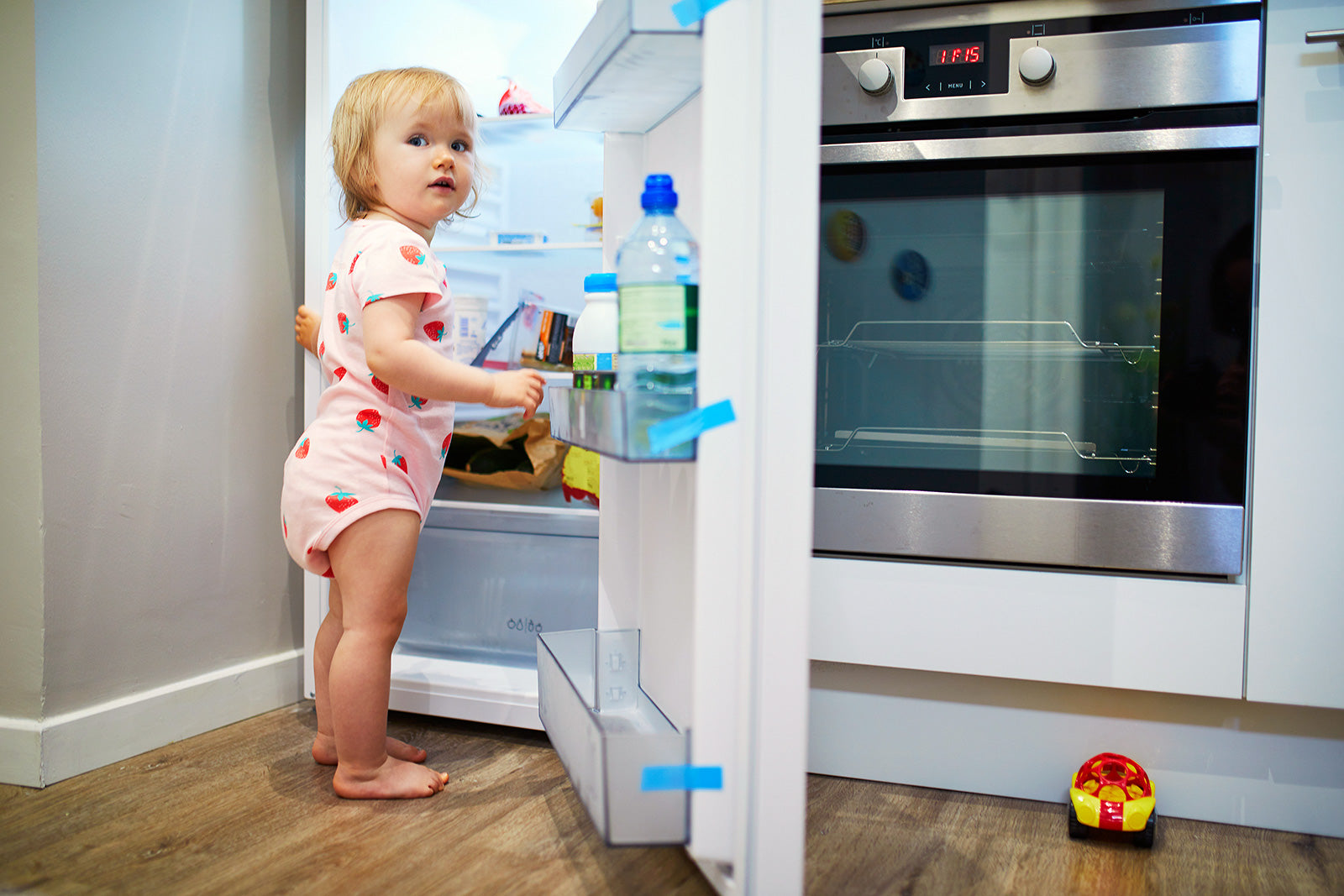The Best Way to Feed Your Baby Formula at Night

Middle of the night feedings are no doubt one of the hardest parts of parenting an infant. Though formula-fed babies generally can go for longer stretches of sleep than breastfed babies, they will still wake up to eat for at least several months. And that means dragging yourself out of bed, often multiple times per night, to make sure your little one has exactly what she needs. Though formula feeding at night will probably never be easy, it can go a lot more smoothly if you have a good routine in place.
We’re here to give you our tried and tested tips to make those inevitable formula night feeds as easy as possible (and a discount to go along with the tips!).

How long do babies take formula at night?
Nighttime feeds won’t last forever but they are part of raising a new baby. You’re likely wondering how often your baby will wake for a bottle of formula and at what point they will start sleeping through the night (like seriously when, though?!)
I’m not going to sugarcoat it, there are going to be a lot of wee hour wake-ups while your baby is tiny. But, as the months go by, your baby will grow and so will their tummy. This means they’ll be able to drink more formula in one sitting and start to go longer between bottles.
Here’s a good guideline (referencing Stanford Children’s Health) for how often you’ll need to feed your formula-fed baby:
Birth - 2 weeks: 8 - 12 feedings in 24 hours
Feed on-demand every 2-3 hours around the clock and wake your baby every 3 hours if they don’t wake up on their own. 8 -12 feeds per day is normal. At your baby’s 2-week check-up, your pediatrician will likely allow you to let your baby sleep longer stretches if they are gaining weight well.
2 weeks - 2 months: 6 - 8 feedings in 24 hours
Time between feedings will gradually increase to 4 hours. You should continue to feed on demand. At this age your baby may go up to 5 hours between feeds during the night.
3 months - 5 months: 5 - 6 feedings in 24 hours
At this age, your baby will likely still be waking 1-2 times at night for a bottle of formula.
6 months - 8 months: 3 - 5 feedings in 24 hours
Most babies are capable of sleeping through the night at this age. You may want to consider night weaning if your baby is still waking up to eat.
9 - 12 months old: 3 - 5 feedings in 24 hours
By 9 months, almost all formula fed babies should be sleeping through the night. If night wakings are still occurring it’s not likely due to hunger.
The first time your baby sleeps through the night without needing to eat is a milestone to be celebrated. But until then, focus on making those nighttime feeds as routine and as easy as possible.
Types of Formula You Can Feed Your Baby
Before we go over our best tips for nighttime formula feeding, it’s important to understand the different types of formula you can choose to give your little one.
- Powdered Formula
Powdered formula is by far the most commonly used formula as it’s the least expensive. It’s also easy to store and transport. You’ll make the bottle by mixing the proper ratio of formula to water as instructed on the container.
- Concentrated Liquid Formula
Like powdered formula, concentrated liquid formula must be mixed with water before giving it to your baby. It is more expensive than powdered, but may be less messy.
- Ready-to-Feed Formula
Ready-to-feed is just like it sounds. There is no mixing with water, but instead can be poured right into a bottle for the baby to drink. Because of its convenience, it’s by far the most expensive choice.
No matter which you choose, you can be confident that you’re giving your baby the proper nutrition to thrive and grow.
We recently wrote about how to prepare the perfect bottle of formula, which will give you a great guide to bottle prep, but nighttime feedings can be more tricky.
Tips for Making Formula Feeding Easier at Night
Being woken up from a dead sleep by a hungry baby is never easy. But when you have routines in place it makes the process go a lot more quickly.
These are our best tips to getting that nighttime formula feed checked off the list so you can both get back to dreamland.
1. Prepare Formula Ahead
In order to make your formula nighttime feeds go more easily, you’ll want to have everything ready before you go to bed. We suggest having everything within arm’s reach by your bedside, including the bökee which we'll talk about, so you don’t have to worry about heading to the kitchen every time you need to make a bottle. Especially in those first several weeks when you’ll be up multiple times per night.
As far as getting everything prepped ahead of time, you have a couple of different options. Just be sure to follow safe storage guidelines since you won’t be feeding the formula to your baby right away:
-
Mix formula bottles before going to bed and store them in a cooler bag. (This also works for anyone using “ready-to-feed” formula.
OR
2. Keep the formula and water separate until it’s time to feed. We recommend pre-measuring the formula and using a formula dispenser like this one. Have your baby’s bottles filled with the correct number of ounces of room temperature water (you can also opt to fill your baby’s bottle with warm water from the tap when they’re ready for their bottle as long as your tap water is safe to drink.)
2. Prep Bedside with the bökee
Once you hear that first cry in the middle of the night, you know you don’t have a lot of time to get your baby’s bottle prepared. Your baby will continue to cry until they’re in your arms. This means you’ll likely be holding them while you put the finishing touches on your baby’s bottle.
The bökee will come in clutch at this point. This bottle prep accessory allows you to make your baby’s bottle one-handed without having to worry about any spills in the middle of the night.
Simply tuck your baby’s bottle snugly into the bökee to complete the final mixing of your baby’s formula. Screw the lid on and pull it out of the bökee. Give it a good shake and it will be ready to feed to your hungry baby you’ve been holding in your arms - grab yours now.
Needing to warm up that bottle? Read, "9 Genius Baby Products You Need for Your Baby," for our favorite pick along with other product hacks.
3. Room Share
Not only will having your baby sleep in your room make the process of night feedings go a lot more quickly, but the American Academy of Pediatrics recommends room-sharing (but not co-sleeping) for the first 6 months ast it can reduce the risk of SIDS by up to 50%. It’s the safest choice as well as the easiest way to tend with middle-of-the-night wake-ups.
To maximize room sharing benefits, we suggest having your baby in a bassinet next to your bed. Instead of having to shuffle to your baby’s room at those first cries, you can simply lean over and lift your little one out of their cradle and into your arms.
This will allow your baby to be comforted and eating more quickly with as little disruption as possible. You’ll both also be able to go back to sleep a lot more easily once your baby has finished their bottle.
4. Keep a Calm Environment
Along the same lines of room sharing is ensuring that the room environment stays as calm as possible for those middle of the night formula feeds. The last thing you want is your baby getting the wrong idea that 2 am means it’s time to party.
Here’s what you can do:
- Keep the room dimly lit - a nightlight should be all you need to be able to see what you are doing
- Make as little noise as possible - by having all of your items set up next to you as suggested above there is less chance of making an unnecessary racket
- Cuddles and gentle kisses is all you need - There is plenty of time to talk and interact with your baby during the day - so keep it to a minimum during the night.
Ultimately you want your baby to know that nighttime is for sleeping. Keeping the room dark and quiet will make the transition back to sleeping a lot easier.

5. Share the Responsibility Between Partners
Sleep is important for all of us for many reasons. If one parent is in charge of all of the night feedings - especially during the earliest weeks, it can be detrimental to their health and well-being as the days go on.
Sharing the responsibility of the nighttime feeds can make a big difference. This also gives the parent who may not see the baby as often during the day a chance for extra bonding time.
Though these tips may seem small, they can make a huge difference in reducing stress for those middle of the night formula feeds. Additionally, they'll help you and your baby maximize your sleep so you can enjoy those precious waking hours by day.





